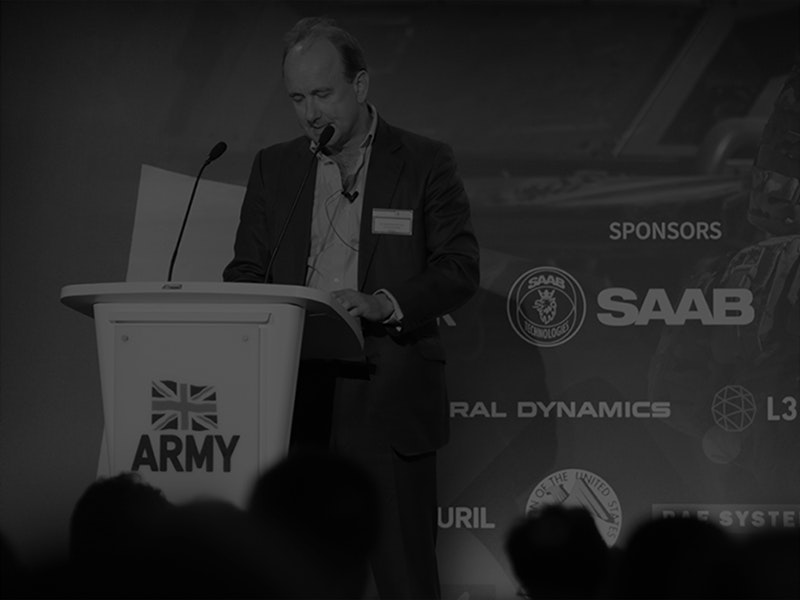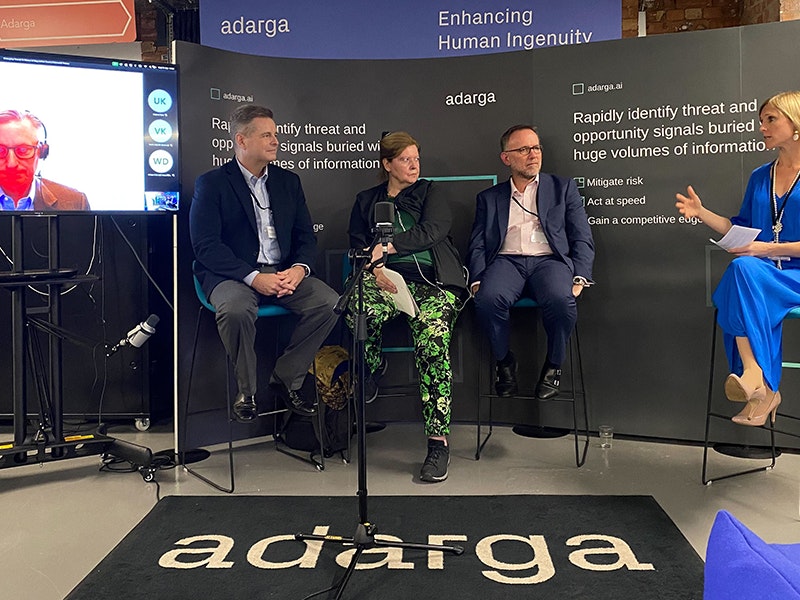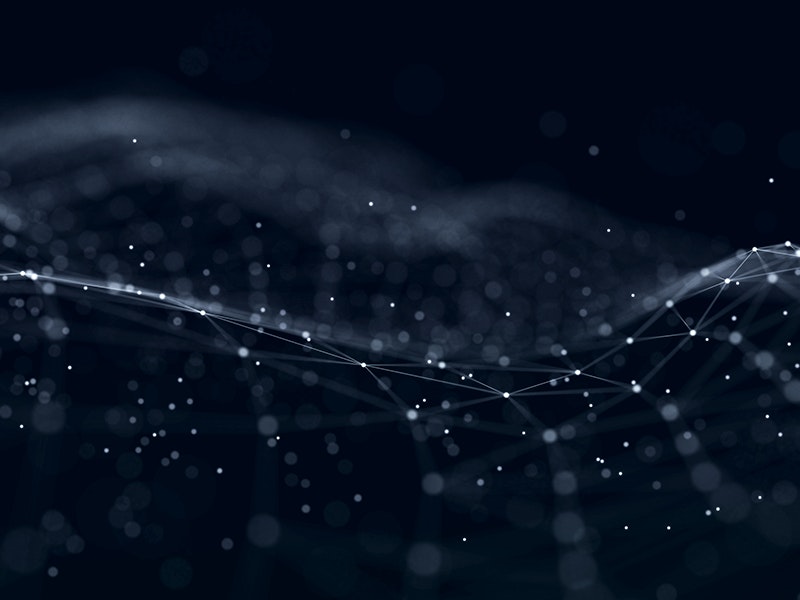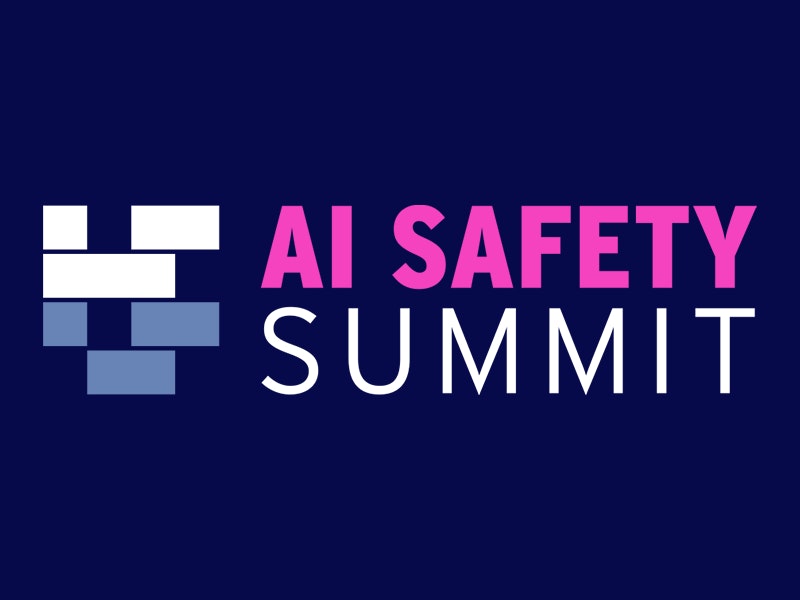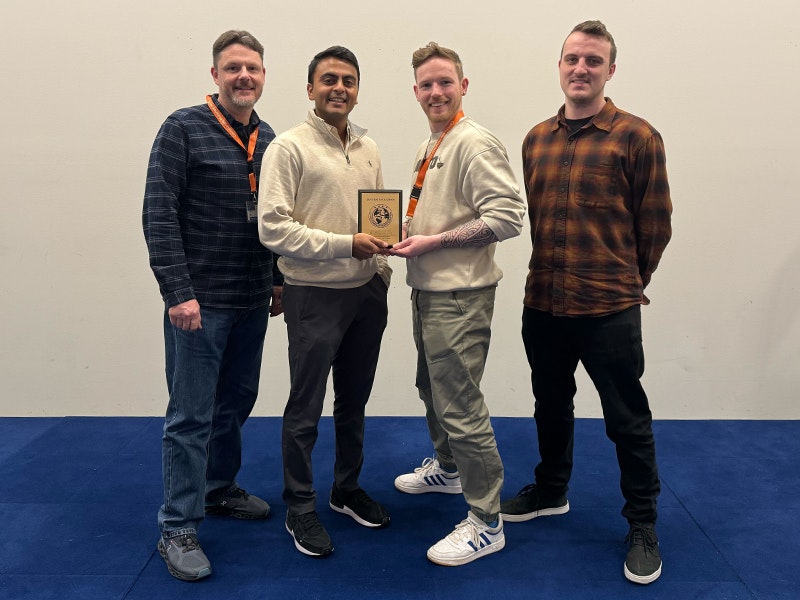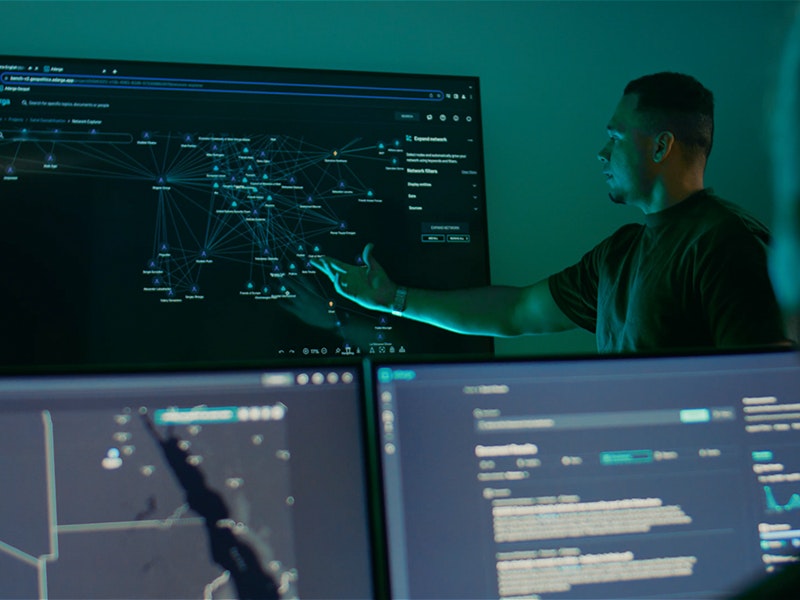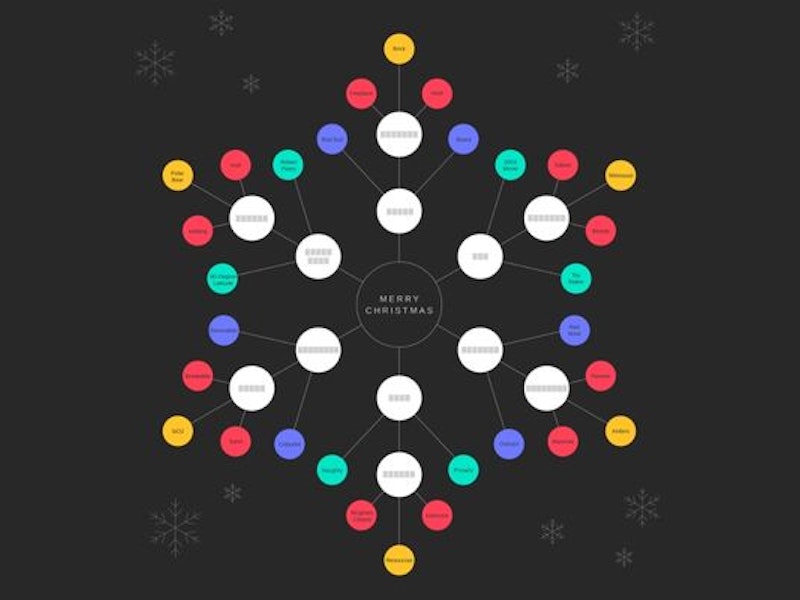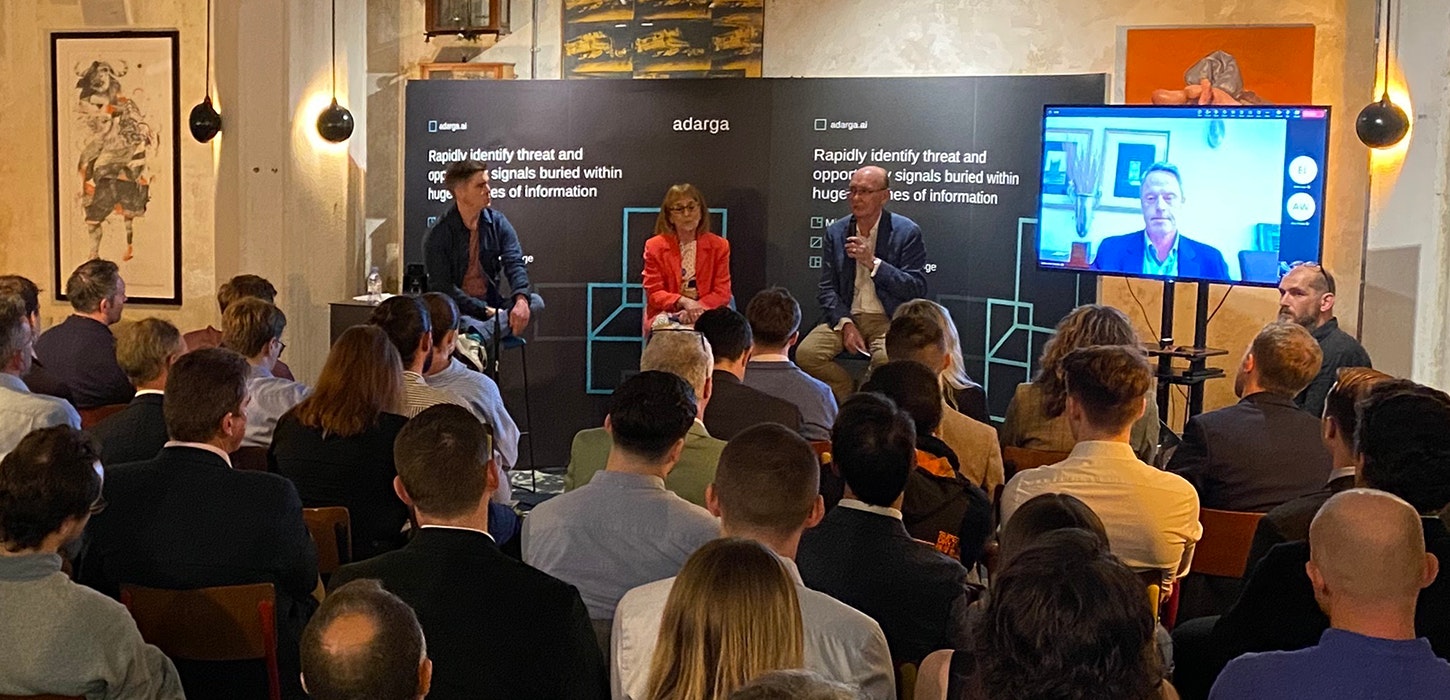
Intelligence professionals gather for Adarga OSINT event
Representatives of the commercial intelligence sector, military, and government departments were among the audience at Adarga’s inaugural open-source intelligence panel discussion in London.
The event saw subject matter experts explore the topic of ‘Putting the INT in OSINT: How technology can enhance and assure open-source intelligence practices’. Participating on a panel chaired by Adarga’s Ollie Carmichael were Frances Tammer, Professor of Practice – Strategy and Security at the University of Exeter, Paul Rimmer, Director, Excellence in Analysis, and Will Linder, CEO of 14 North Strategies, all of whom are seasoned intelligence professionals with decades of government experience in senior roles.
Among the themes addressed was the role of OSINT and its status within the corporate intelligence, defence, and national security communities.
While recognising how recent conflicts – and the war in Ukraine in particular – have demonstrated OSINT’s value, the panellists caveated that the analysis of publicly available information had long been an aspect of all-source intelligence, and that OSINT is one part of the intelligence ‘puzzle’. However, the sheer volume of sources now available makes it a significant challenge to benefit fully from the information and not be overwhelmed by the work required to do so.
Of paramount importance, the panellists agreed, was the effective fusion of OSINT with other sources of intelligence and proprietary data, in order to provide a more comprehensive picture to decision makers.
Augmenting the analyst
Human-machine teaming – and particularly the application of Artificial Intelligence (AI) for OSINT purposes – occupied much of the debate, with the panellists noting how the likes of ChatGPT had brought to the public’s attention the art of the possible. While it was noted that AI can serve to greatly enhance an analyst’s capabilities and that it has utility throughout the intelligence cycle, the importance of the human-in-the-loop was affirmed, and that AI would be an augmentee rather than a replacement.
The panel recognised that at the very least AI can be employed to lift much of the cognitive burden and carry out labour-intensive tasks, freeing up analysts to undertake higher value-add work, and in particular strategic assessment, where human expertise is critical for safeguarding. They cautioned, however, that specialist AI tools are required for the critical work undertaken across the intelligence sector.
The panellists also explored the more complex tasks that AI can be applied to, with triaging, helping with targeting and the prioritisation of resources, formulating hypotheses for further examination, and gap analysis – such as corroborating classified intelligence – all identified as potential uses.
Trust in outputs
Of great importance, the panel agreed, was the ability for intelligence analysts to demonstrate how they had arrived at their conclusions and show the sources of information when presenting intelligence reports that have utilised AI. This ‘information provenance’ is essential if decision makers are to trust in the outputs of AI and ‘buy-in’ to its widespread application, it was argued.
Along the same vein, the need to curate the datasets generated from open-source analysis was discussed, with it recognised that for some regions of the world and topics it can be a challenge to access reliable open-sources for a variety of reasons, such as government control of the media.
Obstacles to adoption
Discussing the challenges that persist and need to be overcome before AI-driven tools and other technology is rolled-out at scale and becomes part of the fabric of intelligence organisations, the panellists noted that, funding issues aside, cultural obstacles and acceptance of new and emerging technologies remain. To assuage concerns around the use of AI, the need for greater awareness, education, and training in its application was noted.
“As a company that serves defence, national security, and private sector customers, we are seeing a convergence of how intelligence is being gathered and exploited,” said Charlie Maconochie, Adarga’s Senior Vice President, Public Sector, “This is being fuelled by an increasingly complex geopolitical landscape, which is driving demand for a higher speed and quality of intelligence than ever before. OSINT is an important part of this, and our aim with the panel discussion was to bring together intelligence professionals to explore how practices can be enhanced through the application of technology.”
A competitive landscape
Concluding remarks and topics addressed in the Q&A included the competitive landscape between the West and its adversaries. With the resources and focus being placed on the use of AI in the intelligence domain by China and Russia being front of mind, and that they are unlikely to be constrained by regulatory and ethical concerns. The approach being taken by the US government and military in rolling out AI capabilities was given as an example to follow, notably the key role industry is playing in developing and fielding technologies.
Furthermore, the importance of the human analyst’s expertise when considering ‘intent’ was highlighted, and that while the application of AI to intelligence practices may not be the determining factor in the success or otherwise of an intelligence organisation’s work, it does provide a competitive advantage to users.
To stay informed of future Adarga events click here
Adarga’s Vantage software is a single, secure platform that extracts, connects, and contextualises open-source, proprietary, and internal datasets. With evidenced outputs and transparency at its core, it is designed to increase the speed and quality of intelligence delivered to customers. To learn more click here

